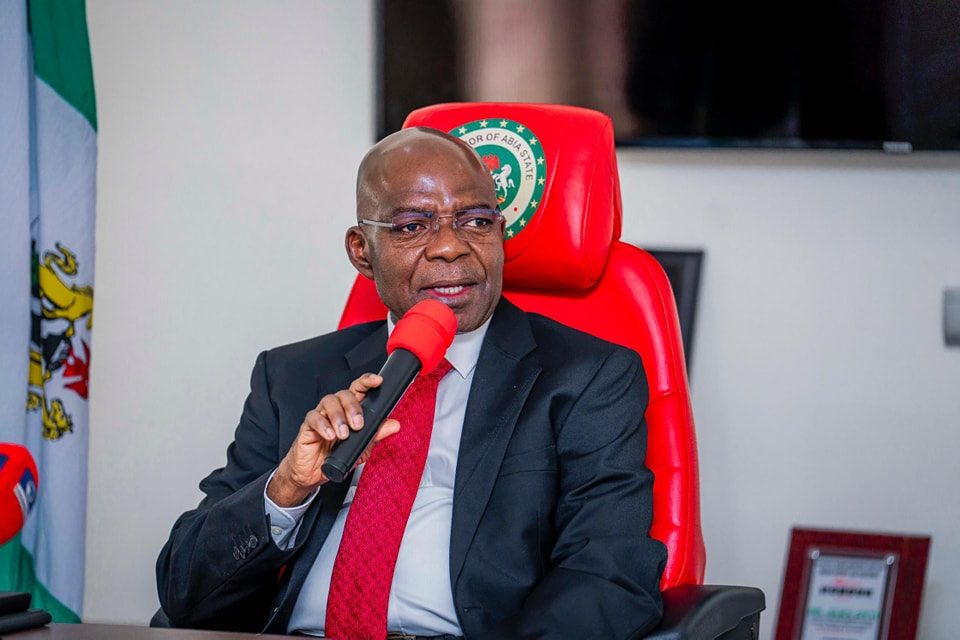*Identify poor leadership, power capture as halting continent’s progress
Deji Elumoye in Abuja
Minister of the Federal Capital Territory (FCT), Nyesom Wike, on Thursday flayed what he described as Africa’s entrenched culture of transactional and mediocre leadership, saying it has crippled the continent’s capacity for growth despite its abundant human and natural resources.
Speaking at the Innovate Africa Conference 2025, organised by Knowledge Africa Corporation in Abuja, the erstwhile governor of Rivers state, emphasised that Africa’s vast potential continues to be undermined by self-serving politics, weak governance systems, and leaders who prioritise personal gain over public service.
According to him: “Africa today stands at a historic crossroads. On one hand, we are blessed with immense natural wealth, youthful energy, and creativity; yet we continue to grapple with weak institutions, infrastructural decay, poverty, and unemployment. How can a continent so richly endowed remain so constrained?”
Delivering a keynote address titled “Reimagining Africa’s Leadership and Investment,” Wike lamented that both military and civilian leadership across the continent have long been shaped by ambition and conspiracies detached from national goals.
He called for a paradigm shift from transactional leadership driven by patronage and short-term gain to transformational governance anchored on vision, courage, and accountability.
“The time has come to move beyond transactional leadership to embrace transformational governance that empowers rather than exploits, serves rather than rules, and builds rather than blames,” the Minister said.
Wike urged African leaders to rediscover the ethos of servant-leadership, describing it as leadership rooted in empathy, humility, and shared responsibility.
He cited Abuja’s ongoing infrastructural renewal as proof that vision backed by political will can transform aspirations into measurable progress.
The Minister also commended President Bola Tinubu’s reform-driven leadership, particularly the removal of fuel subsidy, which he described as a courageous decision that previous administrations lacked the will to undertake.
Also speaking, former President of the Pharmaceutical Society of Nigeria and Founder of the New Nigeria Group, Mazi Sam Ohuabunwa, said Africa’s political evolution has been stalled by the capture of power through force, manipulation, and fraud rather than competence, character, and capacity.
He called for “power metamorphosis”, a transformation of power structures and relationships to promote inclusivity, innovation, and investment.
His words: “Government in many African nations has become largely a prize of clan enterprise, where offices are shared as rewards for loyalty or campaign funding. This undermines competence and slows national progress”.
Ohuabunwa identified decentralisation, participation, empowerment, adaptability, and innovation as key to rebuilding Africa’s leadership ethos, warning that “nations rise or fall on the quality of their political leadership.”
He urged African countries to reform leadership recruitment, minimise the influence of money in politics, embrace inclusivity and merit, remove age barriers to youth participation, and enforce term limits.
“Africa must shift from aid to strategic partnerships, from self-interest to the common good, and from political power as privilege to power as service,” Ohuabunwa said.
Earlier in her welcome address, Co-founder of Innovate Africa, Uloma Onyebuchi, described the conference as more than a gathering, “a movement dedicated to celebrating African excellence, amplifying local innovation, and inspiring transformation from within.”
“Today’s conference isn’t just another event; it’s a movement that challenges us to think boldly about the future we’re building together,” Onyebuchi said.
She said sustainable development on the continent must be anchored on governance that inspires trust, technology that connects people, and leadership that empowers communities.
According to her, the conference sessions were designed to stimulate dialogue, forge partnerships, and convert ideas into tangible action across key sectors such as digital innovation, economic diversification, creative tourism, health, and security.
“Let’s make today a celebration of Africa’s potential and a reminder that the future truly begins here,” she stressed.




